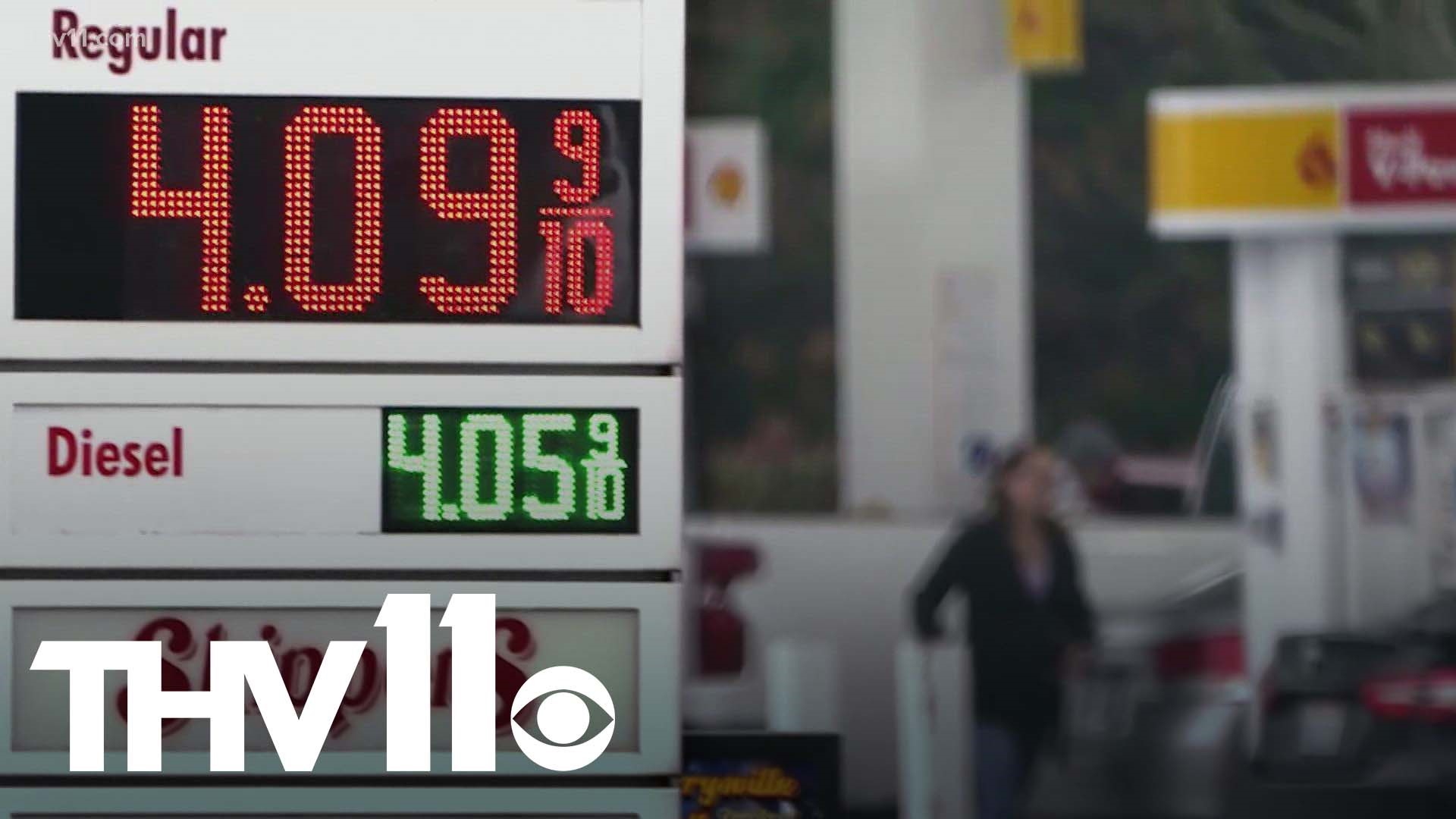LITTLE ROCK, Ark. — Even though the conflict isn't happening on our soil, Arkansans should prepare to experience some of the impact of Russia's invasion on Ukraine.
With inflation already high, UCA Assistant Economics Professor, Jeremy Horpedahl fears that geopolitical tensions could only make things worse-- resulting in even higher gas prices, or causing our grocery bills to increase.
"Unfortunately, this looks like just more bad news for us," he said.
Impacts ranging from the gas pump, to your home, to the food you buy, tensions around the world are only going to make an already pricey time that much more expensive, according to Horpedahl.
"The biggest impacts that we'll see here in Arkansas are going to be on the price we pay for gasoline and energy more broadly, including natural gas and things like that," he said.
Already, oil prices have surpassed $100 a barrel and the price that people are paying to heat their homes has risen by 50% compared to last year.
Unfortunately, Horpedahl said Russia's invasion of Ukraine is only going to make those prices higher.
"This is not going to help the inflation situation that consumers have been feeling already. If we were hoping maybe we peaking here now, this is going to prevent that from happening at any time in the near future," he said.
But, it's not just energy that we get from that region of the world. Russia and Ukraine are also big suppliers of metals, corn, wheat, and agricultural products.
"It's going to vary depending on what business we're talking about, but it's hard to find a silver lining where it'll actually positively affect any business," he said.
Businesses like grocery stores are going to feel the impact of rising fuel prices, which is only going to fall back on the consumer according to Steve Good of the Arkansas Grocers and Retail Merchants Association.
"It has a trickle down effect. It makes the cost of your milk go up and makes the cost of your bread go up. It makes the cost of everything go up," he said.
Goode's biggest concern is what this attack could do for the supply chain.
"The scarcity of items is really starting to worry me a little bit," he said.
While the impact on our economy is inevitable, it's the future that worries them most.
"The uncertainty is just, that part of it just makes everything that much harder," Horpedahl said.
He said they won't know how hard we are hit economically until we see how long the military conflict lasts.

